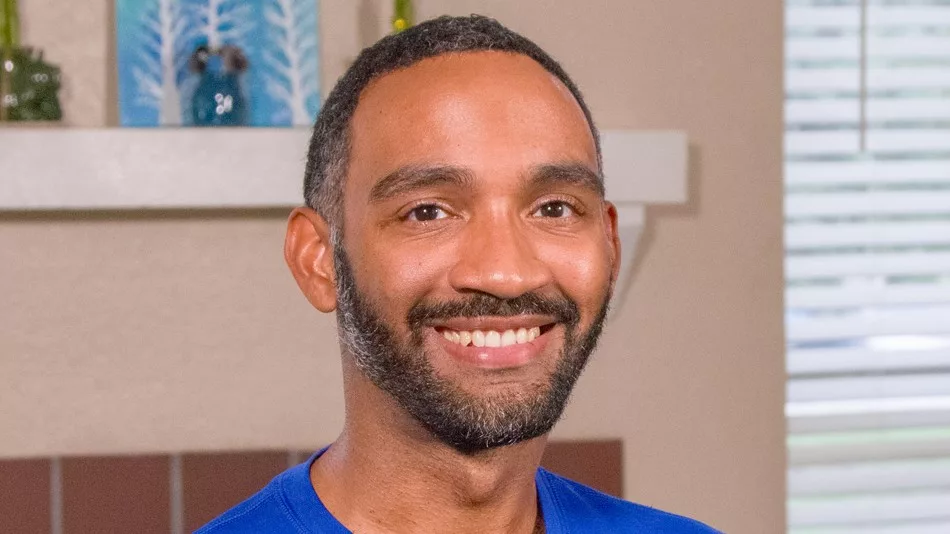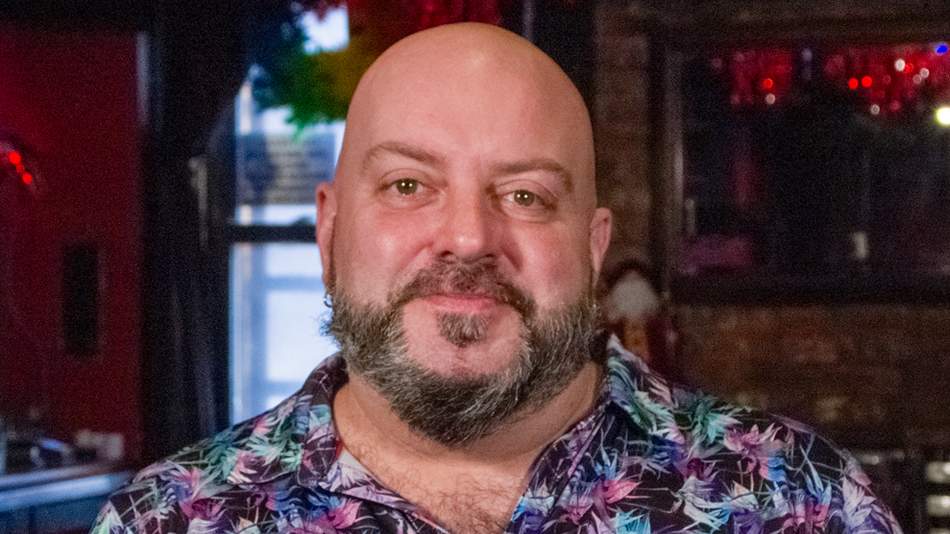My name is Tom Wicker and I’m from Lewes in East Sussex in the United Kingdom. My first memory of anything gay related was actually a TV ad when I was probably about 4 or 5. And it was of a stormy volcanic landscape with lightning in the background and an enormous tombstone which, I later learned, had the word AIDS written on it. I think for the better part of the first 18 years of my life that was what gay was. It was sadness and illness and death.
And the only other experience of being gay in my early teens before I came out at 19 was a public toilet in my hometown, where I used to go down because we wrote stuff on the walls and it was quite exciting.
And I remember going down to that toilet once, one Saturday afternoon, on my way into another town. And there was a man at the urinals. And I went to take a pee and he wasn’t peeing, he was masturbating. And I was sort of dumbstruck.
And then he reached over and grabbed my arm, and then went to move me into one of the cubicles. And it was as if the spell had been broken and then I was terrified. And I pulled away and I went to leave.
That was the only experience I had of anything gay again until I came out at 19 and began dating people.
One of the other issues in my life during that time was that I suffered from depression. Specifically anxiety. And it would often seize on certain things and I would become paranoid and obsessive about them. And as I continued to be a sexually active gay man, the anxiety and the obsession used to focus on sex.
And my mind would always jump back to that ad. And to that dirty, disgusting toilet in my hometown.
I would do all the things that people tell you not to. I’d Google symptoms. I’d go onto forums. I’d read about these things. I’d scare myself half to death. I wouldn’t sleep. In the insidious way depression works, it began to take over my entire life.
And around the Autumn time of 2005, it got really bad. I stopped sleeping altogether. I’d lay awake panicking, worrying, sure that I had caught something.
I did the thing that seemed like the solution, which was to get tested. But of course all of that was symptomatic rather than the cause. Though I would be momentarily happy with the result, and then the doubt would creep in again. What if it had been that they’d made an error? What if someone else’s blood had been tested?
I went back from work to my parents for Christmas having by that point not slept properly for almost two months.
I vaguely remember one day when I just sort of shut down. And I have flashes of my dad coming back to find me sitting on the sofa pretty much non-responsive. I remember that little bit. And then him bundling me into the car, taking me to some kind of emergency GP clinic. Him explaining what had happened. Him crying. I remember that.
That’s essentially where I stayed for three months – in the spare room in my parents’ house.
And then we all decided that I probably needed to do what I hadn’t done and was way overdue was find a therapist. So we did some research and I found a therapist in London who dealt in cognitive behavioral therapy.
And for the first time, someone said to me, “Okay, instead of talking yourself out of this, instead of saying, ‘Don’t be stupid, you haven’t taken these risks. You’re going to be fine,’ the therapist said, “Okay, you get the result and it is positive. Do you die?”” And I said, “No.” And he said, “So you don’t die straight away.” I said, “No.” He said, “So, in fact, does anything else really change? Do your friends and family disappear?” I said, “No, they don’t.” He said, “Then work with that.”
And in some ways that was a breakthrough because it mean that I’d – this bogeyman under the bed was something I had to pull out and hold by the shoulders and look at properly.
So I kept seeing the therapist, stayed on my meds. And actually the combination of the two was great, because the meds leveled me out and the therapy gave me an outlet.
But also what I realized at that point was that I didn’t really have any gay friends. For all of these years, my overriding impression of gay men was that ad. Or that man in the public toilet. Or any number of movies I watched in my late teens which invariably were about gay men getting AIDS.
So I thought, one of the things to do here is to make an effort to change that. Rather than to see men as the things I wanted to have sex with and the things that would kill me. Actually go out and see them as people.
I started working for an online magazine interviewing people involved in gay initiatives and reviewing and just broadening my circle, and you know in the end, with the combination of the therapy, and just seeing other gay men as people, to talk to, to have a laugh with, and to be a part of community with, made all the difference.








Share